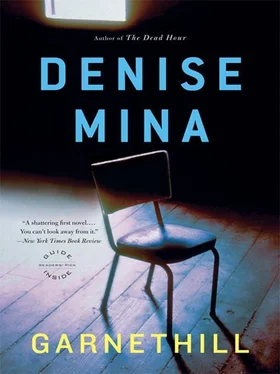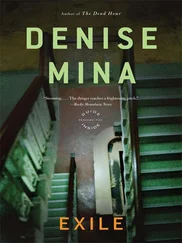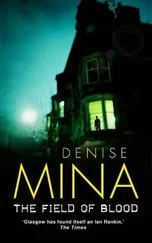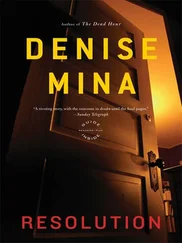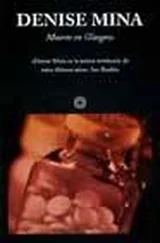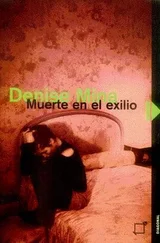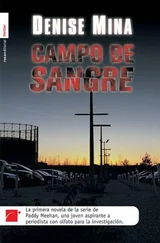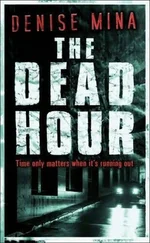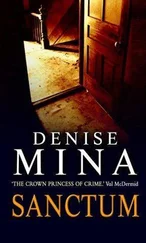Trying not to look at his hair, Maureen ordered a large tub of their homemade ice cream and a bottle of Irn Bru. Mr. Wig bent down to scoop the ice cream out of the freezer and she found herself face-to-face with his matted rug. Below the thick hairs on the toupee the weaving was dirty. She deflected her gaze by staring at the jars of sweeties. When they were very small Winnie would take them to sweet shops on Sundays after mass. Each child was allowed to choose one quarter. Maureen couldn't remember her favorite, it changed all the time, but Liam chose the rhubarb rock every time, without fail. She ordered a quarter. Mr. Wig weighed it out and scooped it into a paper bag, flipping it over as he twirled the corners to close it.
Back at the flat she gave the bag of sweeties to Liam. He opened it immediately and handed them round. "Man," he said, "I haven't had these for years."
In the kitchen she made floaters, pouring the fizzy Irn Bru into long glasses and spooning the ice cream into it. They mixed together, frothing all the way up the glass, settling down slowly while she added more ginger. The kitchen smelled like sweet-tooth heaven. They ate them as floaters should be eaten, greedy and graceless, with spoons and slurps and licks.
Benny had gone to the video shop, looking for Reflecting Skin , but it was out. He got L'Atalante instead, a French movie made in the thirties about a barge captain and his new wife.
They spent the evening wrapped in the cozy comfort of old friends, talking hardly at all and attending to nothing but their comfort. They would remember it as their last happy evening together, as a gentle pause in a troubled time.
MARTIN
She phoned beforehand, just to make sure that Martin would be working that day. She couldn't bear the thought of turning up at the hospital without a kind face to greet her. The head porter told her Martin was on a back shift so she waited until the afternoon before setting off.
The Victorian facade of the Northern Psychiatric Hospital looked strange because the proportions were wrong. The Doric columns were too thick, the pediments too squat. With different associations Maureen was sure she would have found it beautiful but she couldn't. It looked nightmarishly lumpen. She didn't remember seeing the front of the building until the day she left to go home for good. She sat in the taxi and waved happily as Pauline, her anorexic friend from OT, waved back. Skeletal Pauline was standing in the chubby doorway as the taxi circled a turn. Maureen didn't notice that Pauline was crying until they passed her for the second time.
After the joint session, when Maureen started slipping back into the hazy blackness, it was the thought of Pauline that stopped her toying seriously with the idea of suicide. They had both been abused by their fathers, Pauline had been raped by her father and brother, but their responses were very different: Pauline couldn't get angry and Maureen couldn't get anything else. Pauline could never bring herself to tell: she said it would break her mother and that would be harder to bear than the abuse. She was putting on weight when Maureen met her. They did ceramics together – Pauline helped glaze the target ashtray in Winnie's hall. She was the best student in ceramics, she'd repeated the course three times. She'd been in hospital longer than anyone else in the class.
Maureen couldn't bring herself to go back and visit afterward but she did phone Pauline. They didn't have much to say to each other, their closeness was born of proximity, not affinity, but Pauline was always pleased to hear from her and dragged out the phone calls, talking about how her application for a house was going, repeating gossip from the ward, who was being released and what the staff were up to. Maureen found herself reluctant to phone. She stopped questioning Pauline, trying to cut the conversation short, and the phone calls got further and further apart.
Pauline was released a few months after Maureen. She wasn't given a house: apparently she'd been told that she would have to wait another three months. She'd been offered bed-and-breakfast in a bad area and turned it down. Within a week of her return to the family home she went to the woods near her house and took an overdose. She was missing for three days before a woman out walking her dog stumbled across her body. She was lying on her side, curled into a ball under the base of a tree. Her skirt had blown up over her face. At the funeral a nurse told Maureen that until they found a good-bye note in her bedroom, the police thought it was a murder because they found dried semen on her back. Someone had wanked on her as she lay dead or dying. Months later Maureen traveled deep into the suburbs to visit the wood. It was a scraggy stretch of trees leading down a hill to a main road, cut back at one side for a playing field and at the other for a private driveway. The locals were proud of the old wood but only to the extent that it didn't interfere with their individual property. The trees were thin and ailing, so that a walker would nearly always be visible from either side. Burnt plastic and cigarette ends spoke of children from good homes coming here on summer nights to drink cider and touch each other up and set fire to things. Maureen lay down among the dog ends and looked up at the treetops, empty tears running into her hair, and apologized far too late for leaving Pauline alone.
At the cremation Pauline's kind, bewildered mother cried so hard she burst blood vessels in her right eye. The father stood next to her in the pew, his arm around her, patting her shoulder when she whimpered too loudly. There were two brothers. No one knew which had raped Pauline. She never told. The minister told them that Pauline was a well-loved and dutiful daughter. Her coffin slid noiselessly along the conveyor belt, off through a red curtain.
The handful of mourners who weren't family had met Pauline in hospital and knew about her family. They avoided the usual pleasantries that accompany a young death. Only her mother thought it was needless. The mother had been too distraught to make a funeral tea and since Pauline was the only daughter there was no one else to do it for her. She apologized to everyone for her breach of protocol as the mourners walked single file over the motorway pedestrian bridge to a dingy pub.
Liam bought the father a pint of heavy. Liam had known Pauline and liked her. He knew what had happened to her.
"How the fuck could you do that?" said Maureen, under her breath.
"Hush, hush now," said Liam, and pushed her outside. "I put two acid tabs in it. His head'll burst."
She told Liam he should learn to restrain himself.
"I did," said Liam. "I wanted to give him eight."
Weeks later Maureen heard through the grapevine that the father had suffered some sort of schizophrenic episode and had briefly been hospitalized himself.
She could feel Pauline's wan smile warm her heart as she crunched over the gravel to the side door.
She found Martin in the staff canteen. He was sitting with his back to her but she recognized him from his broad shoulders and muscular arms. The back of his neck was creased and weatherworn, as if he had worked outside for a long time. He was eating a greasy pie and chips. "That stuff'll kill you," said Maureen.
Martin looked up and smiled at her. His white crew cut sat like a tiny halo around his brown face, his eyes were set into a bundle of laughter lines.
"Hello, pet," he said.
He had begun to age in the two years since Maureen had seen him: his ears and nose looked bigger. He reached over the table for the sauce bottle and she noticed that his wrists were swollen and he was wearing a copper bangle. He had red broken veins on his cheeks and white tufts of hair had been carefully trimmed on his earlobes.
Читать дальше
